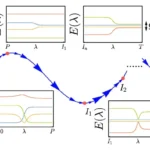Key Points
- Lyrata’s 3D-printed SmartSoil, made from biopolymers, offers a sustainable alternative to traditional hydroponic growth mediums.
- Starting from the University of Toronto George campus, Lyrata has expanded to other Toronto locations, supplying fresh produce to local restaurants.
- The SmartGrow units offer a full-service farming solution, allowing clients to grow crops on-site with minimal space and effort.
- Entrepreneurship Hatchery has played a crucial role in Lyrata’s success, providing funding, mentorship, and valuable industry connections.
Lyrata, a Toronto-based startup co-founded by University of Toronto graduate student Adnan Sharif, is making waves in sustainable agriculture with its innovative 3D-printed soil, known as SmartSoil. Sharif, who first developed the idea while working in a plant immunity biology lab, was inspired by his father’s expertise in manufacturing materials with porous, three-dimensional structures. The technology allows SmartSoil to retain water for extended periods, reducing the need for frequent watering.
Lyrata, which began operations in a greenhouse on the University of Toronto’s St. George campus, grows fresh produce for caterers and high-end restaurants across Greater Toronto. It uses hydroponic techniques to eliminate the need for traditional soil. Lyrata’s approach aims to make the industry more sustainable by replacing the commonly used rock-based growth medium with its locally sourced, biodegradable SmartSoil, which is made from biopolymers such as polylactic acid derived from corn.
Unlike traditional growth mediums that require intensive mining, high-temperature processing, and long-distance shipping, SmartSoil can be locally produced, reused, and eventually composted, significantly lowering the carbon footprint of indoor farming. Sharif and his team pivoted from selling their growth medium to providing a “farming-as-a-service” model, offering modular SmartGrow units that include everything needed to grow various crops, from lighting to irrigation systems.
Clients can lease these compact units in a standard parking space to produce crops on-site without the hassle of managing the farming process. This model helps mitigate supply chain disruptions and fluctuations in produce prices, which are significant concerns for the food service industry.
Lyrata’s progress has been bolstered by the University of Toronto’s Entrepreneurship Hatchery, which provided seed funding, mentorship, and connections within the engineering community. The Hatchery also facilitated partnerships and funding from government initiatives to enhance SmartSoil’s yield and efficiency. Lyrata’s sustainable farming solutions, now used at sites like Casa Loma and Scarborough, demonstrate the potential of innovative engineering to address global food challenges.




